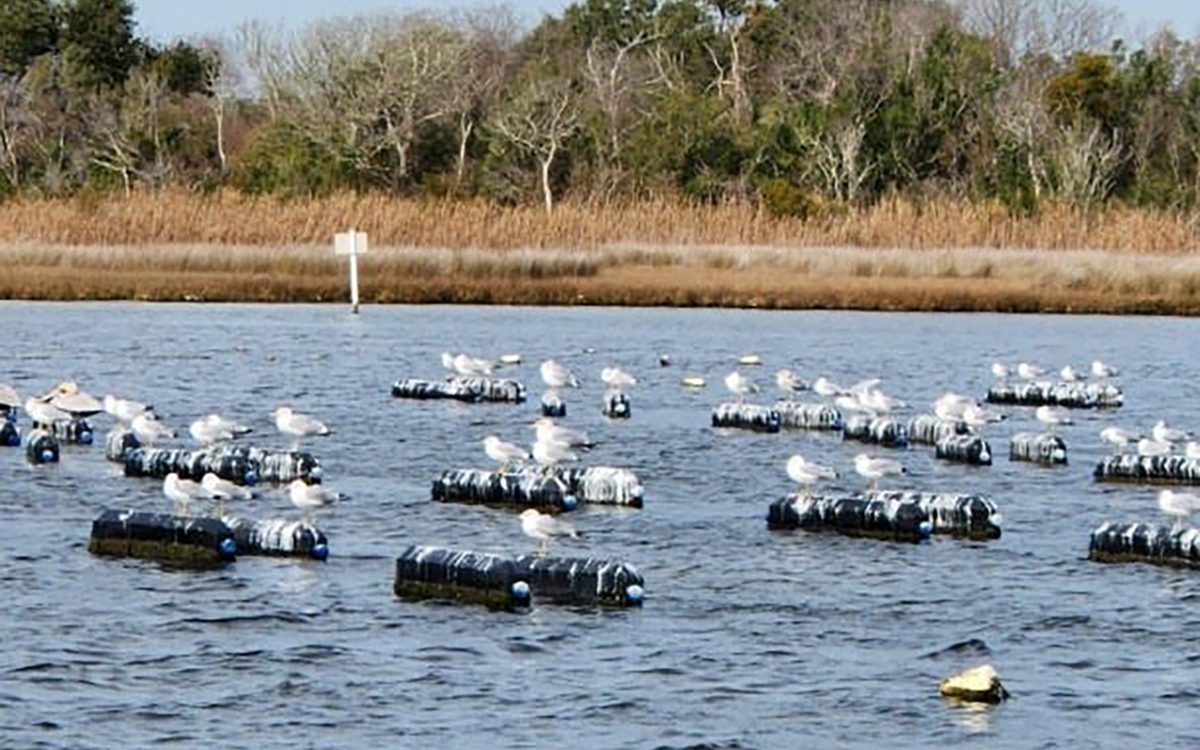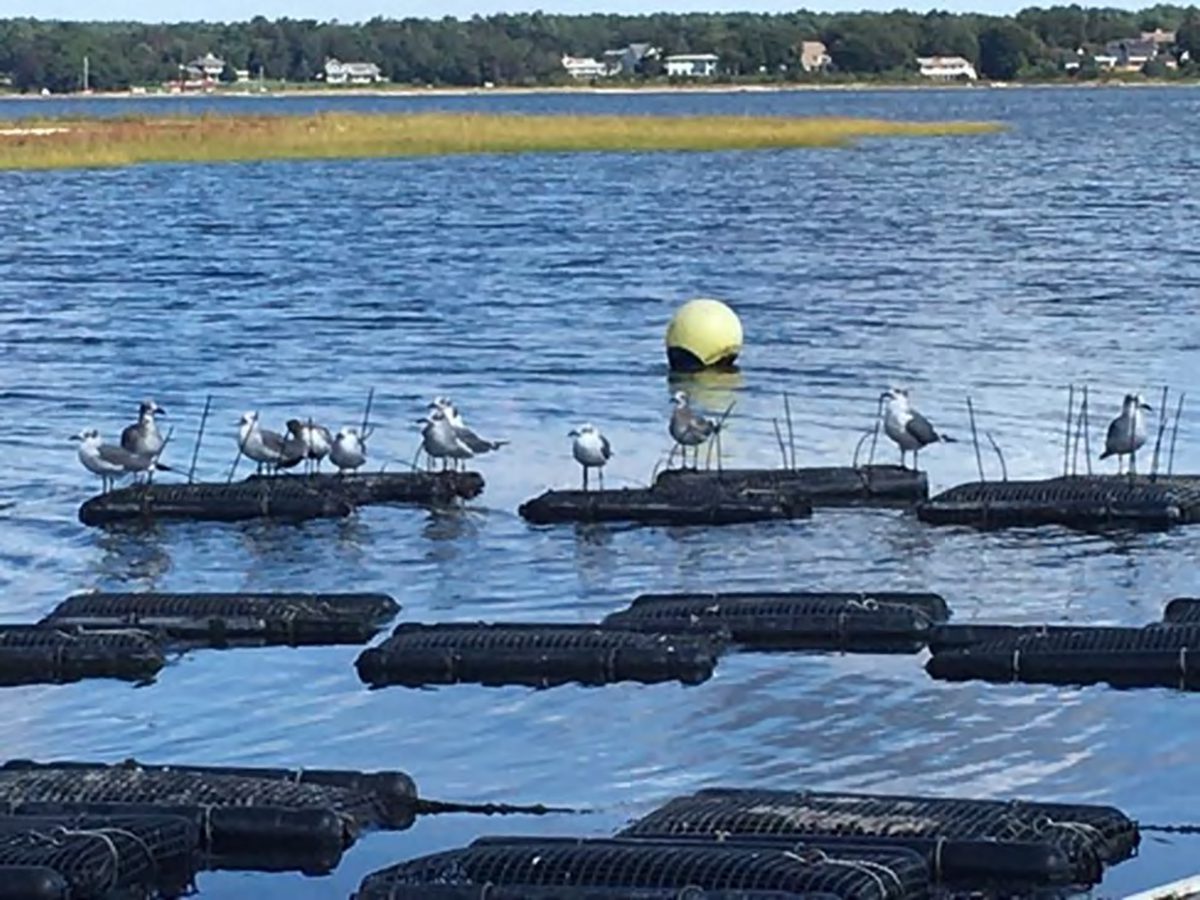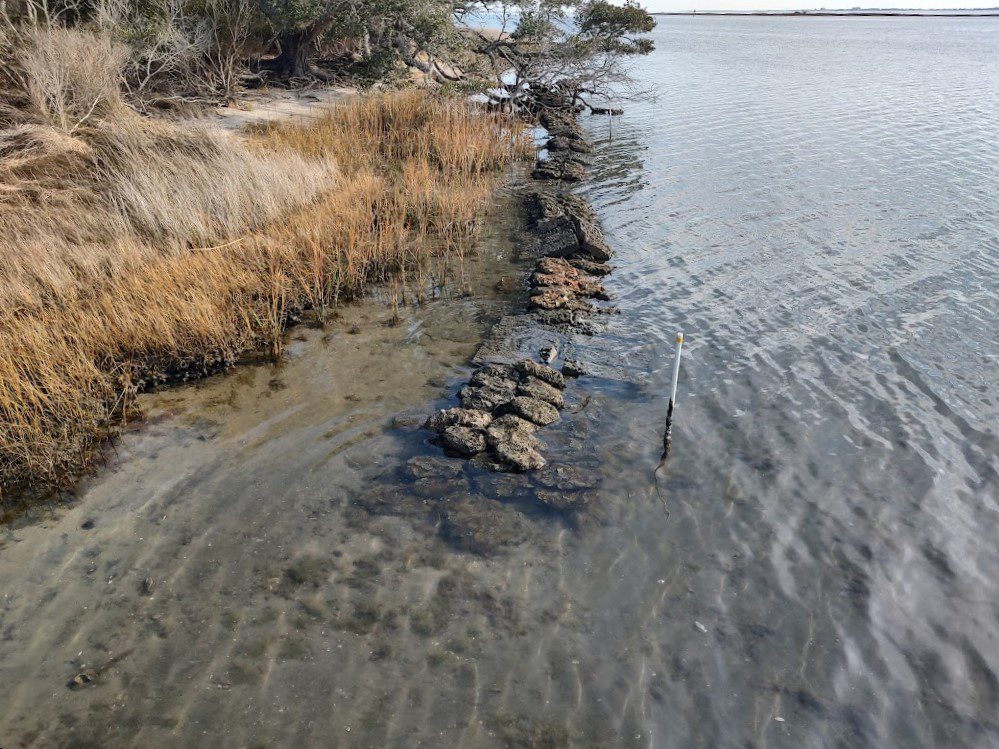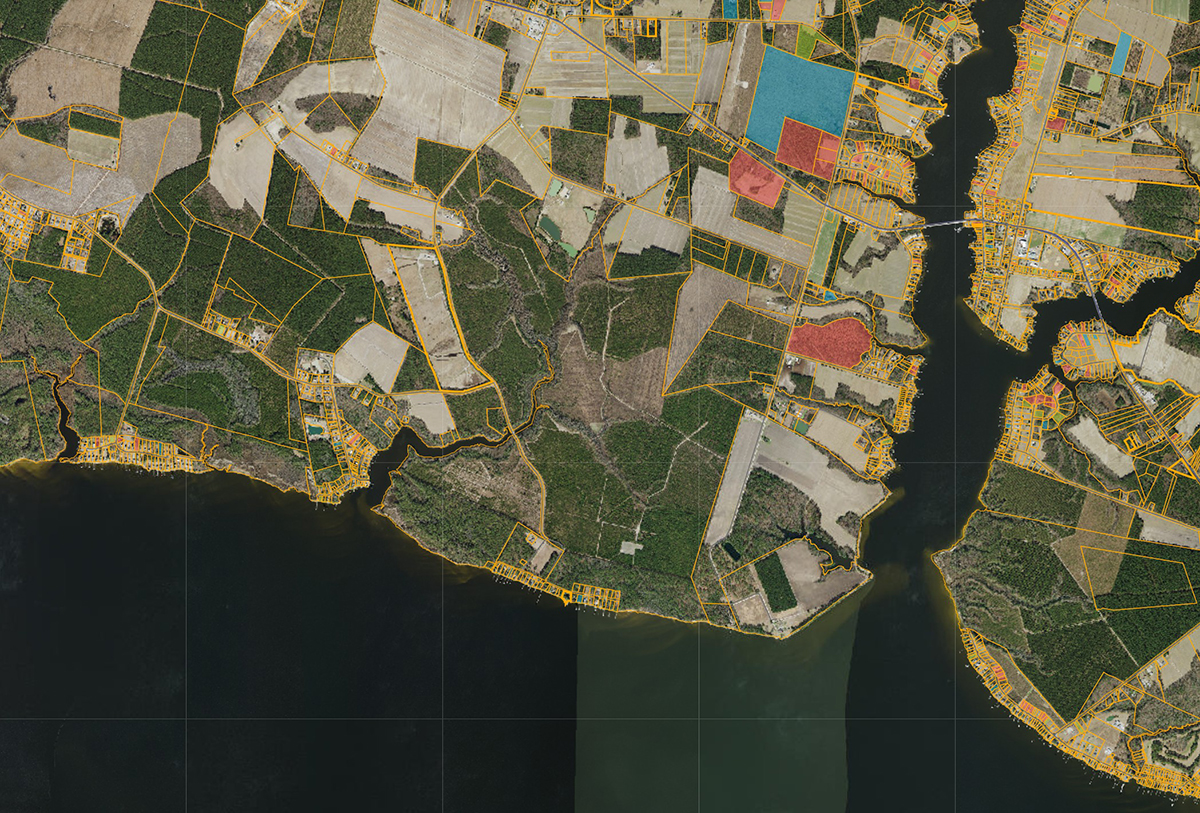
In 2021, a bacterial disease outbreak in Rhode Island was linked to people eating raw oysters grown and harvested in floating cages.
It was that state’s first such outbreak of Campylobacteriosis from shellfish, one that an environmental investigation later traced to birds as the likely source of contamination.
Supporter Spotlight
North Carolina hasn’t had any such case, but the possibility is a concern as the numbers of floating shellfish farms, which can be attractive roosting spots for birds, increase in the state’s coastal waters.
Shellfish growers who use floating equipment, including cages and bags, are required to have action plans to deter birds from perching on gear protruding up from the water surface.
The North Carolina Department of Environmental Quality’s Division of Marine Fisheries, which oversees shellfish lease permits, is required by the U.S. Food and Drug Administration to inspect lease operations at least once a year.
But, as with a number of state agencies, the division is shortchanged on personnel, leaving fewer than 60 officers to cover hundreds of miles of the state’s coastline spanning 20 counties and 2.5 million acres of water.
“We are patrolling the waters every day for all types of violations,” said N.C. Marine Patrol Col. Carter Witten, the division’s top law enforcement officer. “We need people and we need officers.”
Supporter Spotlight
The division has been given the green light to create a new aquaculture position, someone who will help inspect leases and make sure lease holders are in compliance.
It’s a step in the right direction, but more leases, paired with the continuing coastal population boom — more residents, more boaters, more recreational fishermen — only further tip a scale where circumstances outweigh staff.
There is the potential to fund additional division enforcement positions through the Commercial Fishing Resources Fund, but such a decision lies solely with the Marine Fisheries Commission and the Funding Committee.

The first water column lease issued in North Carolina was in 1991.
Today, there are more than 150 water column shellfish leases covering a little more than 500 acres along the coast.
The number of existing leases pales in comparison to the number of applications submitted to the state over the past decade – nearly 270 since 2014.
Proposed water column leases spanning a total of just under a dozen acres in Pender County were met early last month with a flurry of local opposition during a public hearing hosted by the division.
The majority of speakers said that while they supported local shellfish farming efforts, the addition of leases in the waters near Topsail Island will infringe upon popular fishing spots, impede boating and kayaking access, affect the viewsheds of waterfront properties near the farms, and may affect water quality from roosting birds.
Those lease applications from two area oyster farming companies are awaiting final determination, according to the division’s website.
Water column leases, where aquaculture equipment is placed in the water body rather than on the water bottom, are appealing to growers for a few reasons, explained the division’s Shellfish Sanitation and Recreational Water Quality Section Chief Shannon Jenkins.
“With floating gear being so prevalent here in North Carolina and other coastal states, it has a lot of advantages as far as air drying and not getting as many barnacles and things like that,” Jenkins said. “It has faster grow rates in many cases that the farmers find beneficial. But along with that, it can attract birds.”
To try and keep birds from perching on rows of cages within a lease, shellfish growers use repellents such as zip ties, their pointy ends jutting upward to deter birds from landing, or spinning whirligigs.
“We don’t say whether their plan will work or won’t work,” Witten said. “All we can do is evaluate it and see whether it’s working or not. If it’s not working we can advise you that you need to come up with something else. Something might work today and next month it doesn’t work and you have to change it. You can have zip ties all over it and I’ve seen birds land on it.”
A lease holder is required to use the bird deterrent method specified in a permit application.
“If we go out there and they haven’t done that then we can do a notice of violation on their permit because they didn’t follow their plan,” Witten said.
But there is a major incentive to growers to try and keep birds from congregating on floating gear and, let’s be blunt, pooping on their cash crop.
“First and foremost, the lease holders, they’re smart business people and they don’t want to get anybody sick. It would not be good for business,” Jenkins said. “Right now, North Carolina shellfish industry has a really great track record and great reputation. It’s obviously rare for this to cause a health issue, but it is certainly a potential. It’s also not a good visual to have bird waste on people’s cages. It’s, again, in their interest perception-wise and health-wise and reputation industry-wise to remain diligent on that.”
He said it is possible that more staff positions like the one the legislature approved during the North Carolina General Assembly’s last session will be needed if shellfish leases continue to grow at the rate they have in recent years.
“We’re supposed to inspect shellfish lease operations at least once per year according to the National Shellfish Sanitation Program, so to remain in compliance with that we would need that ability to do that,” Jenkins said. “It could be problematic if we got to a point where we were not able to do that.”







